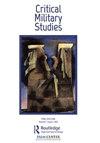Female combat commanders of the YPJ and political agency – framing the fight on their own terms
Q1 Arts and Humanities
引用次数: 0
Abstract
ABSTRACT Women have taken part in several insurgencies. Research shows that women resort to violence not only for private reasons but also as a means to achieve political goals. The aim of this study is to explore how high-ranking YPJ commanders’ frame their decision to first joint the PKK and their use of violence as founding members of the YPJ. This is done with the help of a thematic analysis of life history interviews with three YPJ commanders in the midst of the civil war in Syria. The focus is on how the interviewees frame the themes. When highlighting some aspect of reality over other aspects, for example, in the context of a conflict, frames act to define problems, diagnose causes, make moral judgements, and suggest remedies. The study argues that the respondents’ framing connected their personal experiences with broader ideology. Thus, personal experiences can lead to embracing a broader ideology such that they motivate women to join the violent struggle. Three themes emerged from the analysis: Patriarchy; inspiring examples; and global liberation and democracy. These explorative results suggest a corresponding three-stage analytical framework for analysing how women join militant movements during civil wars: Personal experiences that define the problem and prepare the ground for action; other women’s roles as pathbreakers making the previously seemingly impossible action appear possible; and finally, the formulation of a political goal to guide action. This framework focuses on agency as inherently relational.YPJ和政治机构的女性战斗指挥官们按照自己的方式组织战斗
本文章由计算机程序翻译,如有差异,请以英文原文为准。
求助全文
约1分钟内获得全文
求助全文
来源期刊

Critical Military Studies
Arts and Humanities-History
CiteScore
1.90
自引率
0.00%
发文量
20
期刊介绍:
Critical Military Studies provides a rigorous, innovative platform for interdisciplinary debate on the operation of military power. It encourages the interrogation and destabilization of often taken-for-granted categories related to the military, militarism and militarization. It especially welcomes original thinking on contradictions and tensions central to the ways in which military institutions and military power work, how such tensions are reproduced within different societies and geopolitical arenas, and within and beyond academic discourse. Contributions on experiences of militarization among groups and individuals, and in hitherto underexplored, perhaps even seemingly ‘non-military’ settings are also encouraged. All submitted manuscripts are subject to initial appraisal by the Editor, and, if found suitable for further consideration, to double-blind peer review by independent, anonymous expert referees. The Journal also includes a non-peer reviewed section, Encounters, showcasing multidisciplinary forms of critique such as film and photography, and engaging with policy debates and activism.
 求助内容:
求助内容: 应助结果提醒方式:
应助结果提醒方式:


